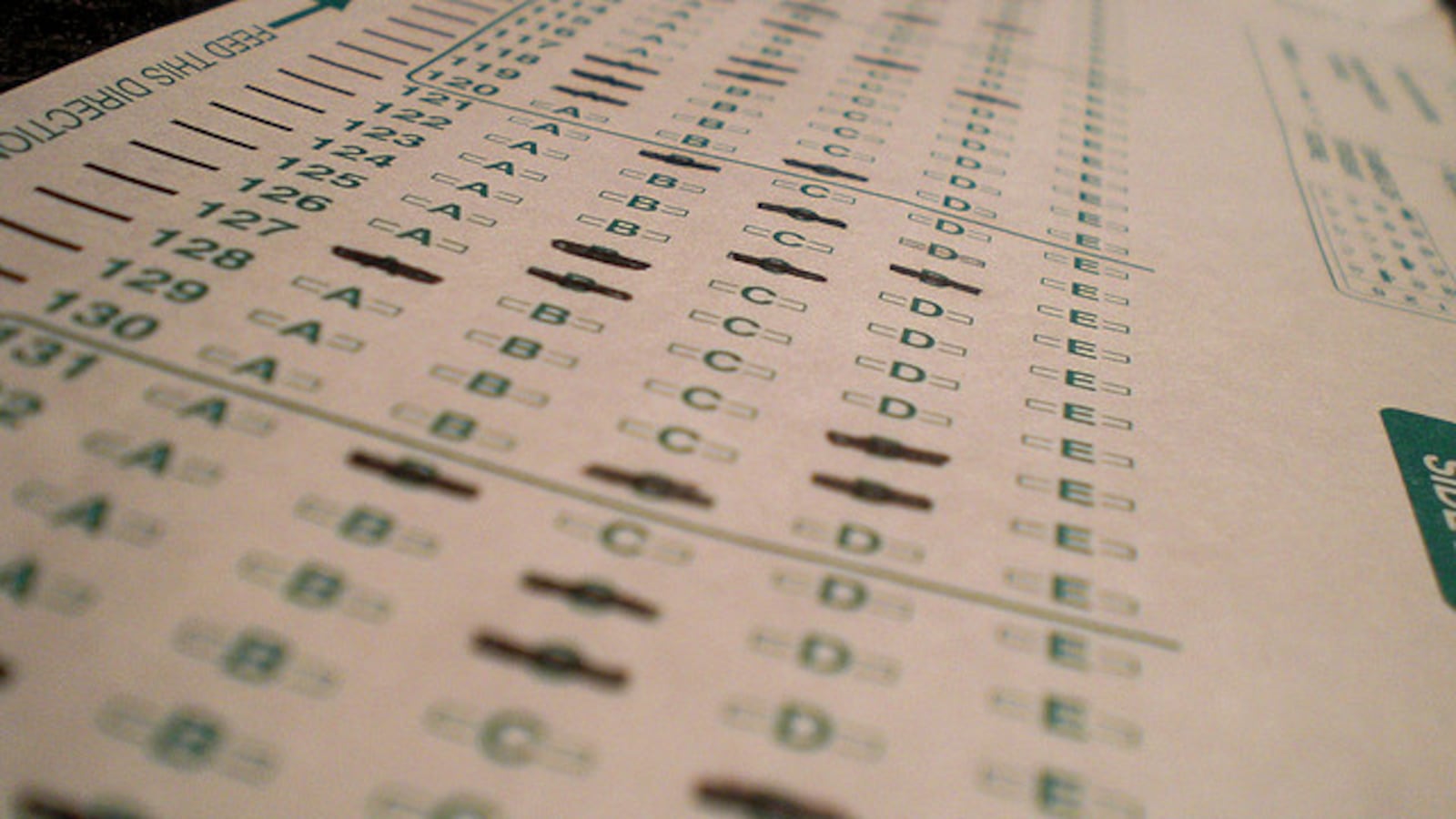The state is analyzing the June Regents exam answer sheets from about 115 randomly selected New York City schools to check for evidence of cheating by educators, officials said this week.
The review, which the state education department has been quietly conducting in every school district for the past few years, is part of an effort to ramp up test security following a rash of test-tampering scandals across the country. The 115 schools represent roughly 10 percent of those in New York City that administered the exams, which students must pass to earn a diploma.
The state is conducting an erasure analysis of the multiple-choice sheets to look for a suspicious number of answers changed from wrong to right, which could signal cheating by teachers or administrators. Although the state pulled a sample of Regents exams to audit since at least 2008, several city principals said they were unaware of the practice.
One Brooklyn principal said the reviews make sense considering that schools that administer the Regents still scan their own students’ multiple-choice sheets using machines they have on site.
“That’s the only piece that we control,” said the principal, who spoke on the condition of anonymity to avoid retaliation for speaking about test security.
As test-cheating scandals have erupted in Georgia, Pennsylvania, New Jersey, and elsewhere, New York has slowly added safeguards.
The state analyzed a small number of Regents exams between 2008 and 2011, which identified 64 instances of test irregularities leading to seven investigations. In 2012, it greatly expanded the Regents exam erasure analysis, and also included the state tests that students take in grades three to eight.
A state education department spokesman would not say on Wednesday which schools had their exams reviewed, or whether past reviews uncovered any irregularities.
The state created a test security office in 2012 after an auditor found many problems with the state’s handling of fraud allegations. That office has “administratively prosecuted” 43 instances of educator misconduct related to tests, including giving students hints during a test, suggesting or telling them the correct answers, and changing the answers they marked, according to a September 2014 presentation. At the time of the presentation, the office had 227 open cases in New York City that needed to be investigated or settled.
Schools that gave the June Regents had until noon the day after administering each exam to scan the multiple-choice answer sheets, according to an April memo to New York City principals. The exams are mostly taken by high school students, though students in lower grades can sit for some of them.
Since 2013 when the state banned teachers from scoring their own students’ exams, schools have shipped students’ written Regents exam answers to central sites to be graded. The number of students who earned the exact minimum score needed to pass fell by half when the city first piloted centralized scoring, suggesting that some teachers had found extra points when they graded their own students’ essays.
While the written answers are graded centrally for the January and June exams, the August exams are graded at the schools where students took them. Still, teachers may not score their own students’ tests.
Academic fraud has received extra attention in the city over the past several weeks.
The city schools chief formed a task force last month to crack down on such misconduct after news reports and investigations revealed that teachers and administrators had improperly awarded credits to students or changed their grades. And this spring, a Harlem elementary school principal admitted to filling in answers on the state tests that students left blank. Soon after, the principal committed suicide.

